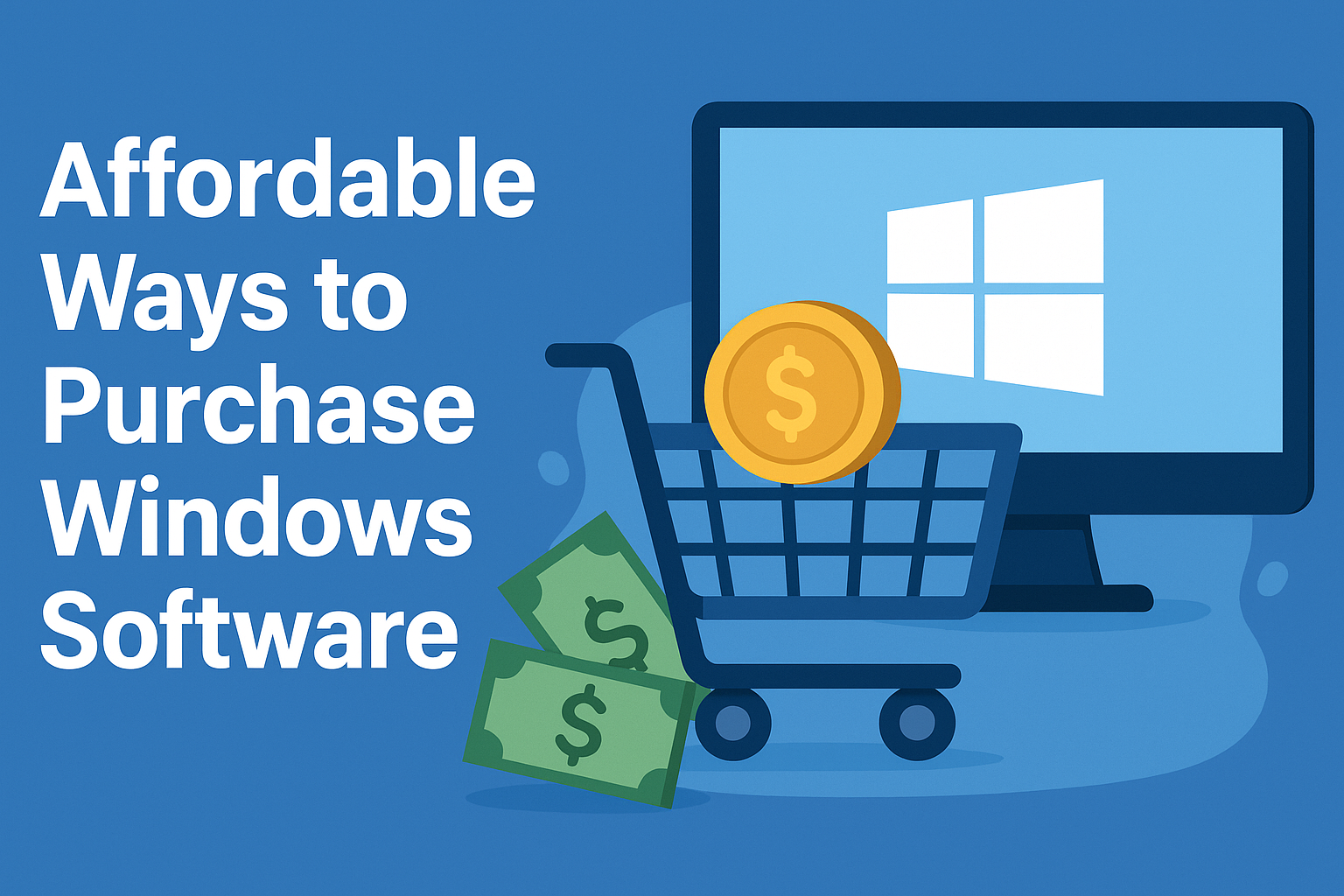Maximizing Profits as a Software Reseller
Maximizing Profits as a Software Reseller
In the digital age, software reselling has emerged as a lucrative business model. It offers a unique opportunity to tap into the ever-growing software market without the need for developing your own products.
As a software reseller, you act as a bridge between software vendors and end-users. You purchase software licenses from vendors and resell them to customers, often adding value through services like installation, training, or support.
But how can you maximize profits in this competitive landscape?
This article aims to guide you through the intricacies of being a software reseller. It provides actionable strategies to enhance your business success. From understanding the software reseller ecosystem to choosing the best software for reselling, we’ve got you covered.
We’ll delve into crafting your unique value proposition, setting competitive pricing, and leveraging effective marketing strategies. We’ll also explore the importance of excellent customer service and the role of customer relationship management tools.

Whether you’re a tech startup founder looking to leverage software reselling for growth, or a content writer seeking to create engaging content on this topic, this guide is for you.
Let’s embark on this journey to maximize your profits as a software reseller.
Understanding the Software Reseller Ecosystem
The software reseller ecosystem is a dynamic and integral part of the software distribution chain. Resellers connect software creators with the businesses and individuals that use the software. This ecosystem thrives on collaboration and strategic partnerships.
Success in this sector depends on understanding the different facets of the reseller environment. Effective communication between resellers and vendors is fundamental. It ensures that the reseller has the necessary product knowledge and support.
A key advantage of being a software reseller is access to a wide product range. This diversification allows businesses to cater to varied customer needs and preferences. For tech startups, this advantage can lead to rapid growth.
Resellers often benefit from attractive profit margins. However, achieving this requires navigating vendor agreements, understanding customer needs, and leveraging marketing strategies. Acquiring these skills can elevate your standing in the market.
Understanding the ecosystem also involves recognizing different reseller models. Each model offers unique opportunities and challenges. Selecting the right path can significantly impact your success.
The Role of a Software Reseller
Software resellers play a pivotal role in the distribution chain. They are the link that bridges the gap between software vendors and end-users. This role involves acquiring licenses from vendors and selling them to customers.
Resellers often add value through additional services. These services can include installation support, technical assistance, or user training. Value addition not only enhances customer satisfaction but also distinguishes resellers from competitors.
Moreover, resellers act as trusted advisors for customers. By offering insights and recommendations, they help businesses select the right software solutions. This advisory role can significantly impact purchasing decisions, fostering trust and loyalty.
Types of Software Reseller Models
The reseller landscape is diverse, offering several business models. Understanding these can help you decide the best fit for your business strategy and goals.
Value-Added Resellers (VARs): These resellers enhance software packages with additional services. The combination of products and services provides comprehensive solutions to customers.
SaaS Resellers: These resellers focus on cloud-based software solutions. They manage subscriptions and often bundle services for ease of use and management.
Affiliate Resellers: Operating mainly online, these resellers earn commissions by promoting software through digital channels. They rely heavily on digital marketing strategies.
Choosing the right reseller model involves evaluating your resources, expertise, and market opportunities. Each model has its own set of requirements and potential for profitability. Embracing the suitable model will streamline your business operations and enhance your market impact.
Choosing the Best Software for Reselling
Choosing the right software for reselling can make or break your business. The selection process should be meticulous. It starts with understanding market needs and aligning them with your offerings.
Identifying the best software entails analyzing trends and product compatibility. Choose software that complements your existing portfolio to provide bundled solutions. This creates additional value for your clients.
Working with reputable vendors is another critical aspect. Vendors with strong support systems and favorable terms enhance your reputation and operational efficiency. Establishing trust with vendors ensures reliable collaboration and access to exclusive deals.
Here’s a concise process for selecting the best software for reselling:
- Research Market Trends: Identify popular and upcoming technologies in your niche.
- Evaluate Compatibility: Ensure new software integrates smoothly with existing products.
- Assess Vendor Credibility: Choose vendors known for quality products and great support.
- Negotiate Favorable Terms: Look for reasonable pricing and flexible contracts.
- Consider Scalability: Opt for software that can grow with your business needs.
Finally, the significance of customer feedback cannot be overstated. Understanding your customers’ experiences with your products enables you to make informed decisions. It helps refine your software offerings and improve customer satisfaction.
Analyzing Market Demand and Compatibility
Analyzing market demand is crucial in selecting software. Understanding what your potential customers need will guide your choices. Surveys, customer feedback, and industry reports are valuable tools for such analysis.
Compatibility is equally important. The chosen software should seamlessly integrate with your existing systems and other offerings. This ensures that end-users have a cohesive experience, reducing friction and support issues.
Moreover, compatibility ensures operational efficiency. Products that work well together require less technical support. This translates to cost savings and enhances the overall customer experience, fostering loyalty and repeat business.
Building Relationships with Software Vendors
Building solid relationships with software vendors goes beyond transactional deals. It involves creating genuine partnerships for mutual growth. Effective communication is the cornerstone of these relationships.
Understanding a vendor’s business model and priorities aids smoother collaborations. Familiarity with their processes allows you to align your reseller strategy effectively. This alignment can unlock opportunities for better pricing and exclusive products.
Furthermore, strong vendor relationships offer more than just financial benefits. They provide critical support resources such as training and marketing materials. This support enables you to better serve your customers and position yourself as an industry leader.
Crafting Your Value Proposition
Your value proposition is the heart of your reselling business. It’s what sets you apart in a crowded market. Clarity in your value proposition attracts customers and fosters loyalty.
To craft a compelling proposition, understand your target audience. Know their needs and pain points. Your offerings should provide solutions that directly address these issues.
Highlight the unique benefits of your software products. This can include ease of use, superior customer support, or cost-efficiency. Ensure that what you offer is compelling enough for customers to choose you over others.
Innovation is crucial here. Continuously refine your offerings based on feedback and market trends. Staying updated and adaptable ensures your value proposition remains relevant and engaging.
Differentiating from Competitors
Differentiation is the key to capturing market share. Recognize what your competitors lack and fill that gap with your offerings. It could be through better pricing, unique features, or exceptional service.
Understanding competitor weaknesses provides opportunities for you to shine. Analyze their customer reviews and industry reputation. Use this information to position yourself distinctly.
Branding also plays a critical role. Develop a strong brand identity that resonates with your audience. An engaging brand story can make your business more memorable and foster deeper connections with customers.
Setting Competitive Pricing and Maintaining Margins
Competitive pricing is fundamental to your success as a reseller. It requires balancing customer acquisition and profit margins. Analyze the market to determine acceptable price ranges for your products.
Consider the following factors in your pricing strategy:
- Cost-Plus Pricing: Add a markup to your costs for a reasonable profit.
- Value-Based Pricing: Price based on perceived value by the customer.
- Dynamic Pricing: Adjust prices based on demand and competition.
Maintaining healthy margins requires controlling your costs effectively. Partner with vendors offering favorable terms, such as discounts for bulk purchases. This helps in reducing the cost of goods sold.
Regularly review your pricing strategy to keep it aligned with market shifts. Flexibility is key in adjusting to changes in demand and competitor pricing. Ensuring profitability while remaining competitive should be a continuous endeavor for any reseller.
Marketing Strategies for Software Resellers
Effective marketing strategies are vital for success in software reselling. It’s about making your products visible to the right audience. Marketing can significantly boost your sales and customer base.
Start with a detailed market analysis. Identify who your customers are and where they spend their time online. This allows you to tailor your marketing efforts effectively.
Digital marketing plays a crucial role in reaching broad audiences. Utilize various channels to ensure a comprehensive approach. Here’s a diverse strategy that covers all bases:
- Pay-per-click (PPC) Advertising: Target specific demographics with compelling ads.
- Email Campaigns: Stay in touch with current and potential clients.
- Affiliate Marketing: Collaborate with influencers to broaden your reach.
Remember, consistent branding across all platforms reinforces your message. Combine this with quality content to engage and retain customers.

Interactive content like webinars and demos fosters deeper customer engagement. It also demonstrates your product’s value in real-time. Such experiences often lead to higher conversion rates.
Digital Marketing and SEO for Resellers
Digital marketing anchors your outreach efforts. It’s essential to engage prospects and nurture them into loyal customers. It’s not just about visibility, but effective engagement.
SEO is a powerful component. Optimizing your online presence starts with targeting the right keywords. Ensure your website is optimized for search engines and user experience.
Incorporating SEO techniques includes content rich in relevant keywords. Your website should load quickly and feature intuitive navigation. Compelling meta descriptions and titles also improve click-through rates.
Don’t overlook the power of analytics. Tracking your campaigns helps measure effectiveness. Adjust strategies based on these insights to maximize impact and return on investment.
Leveraging Social Media and Content Marketing
Social media channels are indispensable for reaching and engaging with your audience. They offer platforms for targeted ads, community building, and direct engagement. Diversity in strategy is crucial across platforms like LinkedIn, Facebook, and Twitter.
Effective content marketing is storytelling. Create informative blogs, tutorials, and videos that educate and engage. Utilize customer success stories to demonstrate your product’s real-world impact.
Posting regular updates keeps your audience informed. It also encourages interaction and keeps your brand top of mind. Consider using tools for scheduling and analytics to optimize these efforts.
Collaborations and partnerships amplify your reach and lend credibility. Engage with thought leaders and influencers in your field. Such partnerships often open up new networks and opportunities for market expansion.
Sales and Customer Relationship Management
Effective sales and customer relationship management (CRM) are fundamental to thriving as a software reseller. Building strong customer connections boosts repeat business. Repeat customers often lead to higher profits and reduced acquisition costs.
CRM systems help manage these relationships by organizing customer information. They streamline communications and improve customer interactions. This fosters loyalty and satisfaction.
Implementing a robust CRM strategy involves several key components. Here’s a detailed approach to managing customer relationships:
- Data Organization: Keep detailed records of customer interactions.
- Communication Tools: Use automated emails and reminders.
- Feedback Systems: Collect and analyze customer feedback.
Personalized engagement is also crucial. Tailor your communication based on customer data. This ensures you address their specific needs and preferences.
Utilizing CRM systems not only organizes data but provides insights. These insights assist in decision-making and tailoring marketing efforts. An informed strategy leads to satisfying both existing and potential customers.
Utilizing CRM Tools for Lead Management
Proper lead management can transform potential clients into loyal customers. CRM tools are invaluable for tracking prospects’ interactions. With these tools, you can prioritize and nurture leads with precision.
Start by capturing lead information efficiently. This includes contact details, communication history, and purchasing potential. Having comprehensive lead profiles enables targeted follow-ups.
Use CRM analytics to evaluate which leads are most promising. Data-driven decisions enhance your sales approach. Focus on leads that align with your ideal customer profile.
Timely and relevant communication is vital in lead conversion. Automated reminders and personalized emails foster relationship-building. This proactive approach often results in higher conversion rates.
Providing Excellent Customer Service and Support
Customer service is the cornerstone of lasting business relationships. Exceptional service can differentiate your company in a competitive market. Customers appreciate timely and effective support, which fosters trust and retention.
First, ensure responsiveness. Address inquiries and issues promptly. This conveys a commitment to customer satisfaction.
Offer multiple support channels to accommodate customer preferences. Whether through live chat, phone, or email, accessibility is critical. Diverse channels ensure customers can reach you in their preferred way.
Training your support team is vital. Equip them with deep product knowledge and problem-solving skills. An empowered team can resolve issues efficiently, leading to happy customers.
Additionally, gathering feedback is crucial for continuous improvement. Use surveys or direct communication to learn about customer service experiences. Addressing feedback helps refine your processes and enhance service delivery.
Scaling Your Reseller Business
Growing your software reseller business involves strategic planning and execution. To scale effectively, consider broadening your product range and entering new markets. This can significantly increase both your reach and revenue potential.
Diversification is key. By offering a wider array of software solutions, you cater to varied customer needs. This reduces dependency on a single product line and mitigates risk.
Entering new markets involves careful consideration. Assess market conditions and demand before expansion. Understanding local regulations and customer preferences is crucial for success.
Effective scaling often involves improving operational efficiency. Here’s a checklist of strategies to consider:
- Automate Processes: Use software for inventory management and sales tracking.
- Strengthen Partnerships: Collaborate with reliable vendors for better product offerings.
- Optimize Marketing Efforts: Tailor campaigns for new segments and regions.
By adopting these practices, you set the stage for sustainable growth. Continuously monitor performance to ensure your business adapts to market dynamics effectively.
Expanding Product Portfolio and Entering New Markets
Expanding your product portfolio allows you to meet diverse customer needs. Introducing complementary software enhances the value you provide. This approach attracts a broader customer base and fosters cross-selling opportunities.
Research is pivotal when adding new products. Understand industry trends and customer demands. Select software that aligns with your current offerings and adds significant value.
Entering new markets requires adaptation. Assess regional demands and cultural nuances. Tailor your marketing strategies to resonate with local audiences. Adapting your approach ensures you establish a presence and build credibility.
Establishing a robust local network is also beneficial. Collaborate with regional partners for insights and support. Local alliances can significantly ease market entry challenges and expedite growth.
Managing Inventory and Logistics
Efficient inventory management is vital for smooth operations. Whether dealing with digital licenses or physical software, organization is key. Proper logistics ensure timely delivery and optimal stock levels.
Automating inventory processes reduces errors and saves time. Use inventory management software to track stock levels and alerts. This prevents stockouts and oversupply, optimizing operational efficiency.
Shipping logistics are equally important. Choose reliable carriers to minimize delivery issues. Regularly review shipping policies and make necessary adjustments to improve performance.
For physical software, consider warehousing options. Efficient storage solutions can cut costs and enhance distribution. Alternatively, embrace digital delivery methods when possible to streamline operations.
Logistics efficiency directly impacts customer satisfaction. Timely and accurate deliveries enhance trust and encourage repeat business. With strategic management, logistics can become a competitive advantage.
Legal and Ethical Considerations in Software Reselling
Adhering to legal and ethical standards is crucial in software reselling. This ensures long-term sustainability and builds trust. Compliance not only safeguards your business, but also enhances your reputation.
Ethical practices involve honesty and transparency in dealings. It’s important to communicate clearly with customers about the terms of use. This prevents misunderstandings and promotes customer satisfaction.
Regularly updating your knowledge on legal requirements is essential. Laws can change rapidly, especially in tech sectors. Staying informed helps avoid costly penalties and strengthens business integrity.
Navigating Copyright and Licensing Laws
Understanding copyright and licensing laws is fundamental. Software is intellectual property, and misuse can lead to severe consequences. Ensure you have proper licenses before distributing any software.
Each software product comes with specific licensing terms. It’s important to read and understand these thoroughly. Non-compliance can result in legal disputes and damage to your reputation.
Engage legal experts for guidance on complex issues. They can provide insights on licensing agreements and copyright laws. Having a legal advisor helps navigate potential challenges and protects your business from unforeseen liabilities.
Conclusion: Building a Successful Software Reseller Company
Building a successful software reseller company requires strategic planning and execution. Balancing product offerings, customer relations, and market analysis is key. Focus on delivering value to customers, which drives repeat business.
Establishing a strong network with software vendors opens doors to better opportunities. Leverage these connections for competitive pricing and exclusive deals. A diversified product portfolio caters to various customer needs, enhancing market reach.
Staying informed on market trends ensures adaptability and growth. Regularly review your strategy to align with industry changes. By prioritizing ethical practices and customer satisfaction, your reseller business can thrive in a competitive market.
Key Takeaways and Next Steps
A clear value proposition sets your business apart in the reseller market. To maximize profits, maintain robust vendor relationships and seek top-tier products. Effective marketing strategies also boost visibility and sales.
Commit to continuous learning and innovation. Attend industry events to network and discover emerging trends. Investing in team development helps provide outstanding customer service, which strengthens loyalty and brand reputation.
Lastly, ensure all legal and ethical standards are met. Compliance not only protects your business but fosters trust. By adhering to these principles, you’re equipped for sustainable growth and long-term success in the software reselling industry.




Leave a Reply